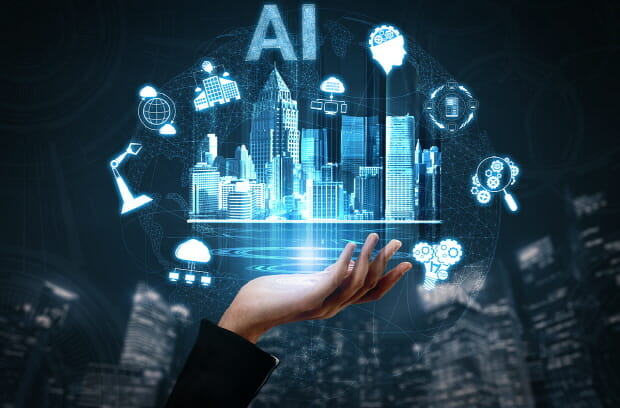
The Korean government’s AI readiness index ranked 7th out of 172 countries. With the government’s support to equip technological capabilities in the AI era, it rose 19 places from the 26th place in one year.
The Ministry of Science and ICT announced on the 14th the major achievements of the Digital New Deal project promoted last year, including strengthening AI capabilities.
The Digital New Deal is a national innovation project aimed at overcoming the corona recession and job problems by investing 44 trillion won in national expenditure by 2025.
After the announcement of the Korean version of the New Deal, the Ministry of Science and ICT pushed forward 81 projects with a budget of 1.6 trillion won last year. More than 12,000 companies and organizations, including 1,843 SMEs, participated in human resource development and digital inclusion.
In particular, domestic software companies’ participation in the supply of data and AI solutions has nearly doubled compared to the previous year. In addition, non-ICT companies’ participation in digital transformation increased by 85%.
The number of employees who participated in digital jobs, including the data dam, is 49,000. 40,105 people directly participated in the data dam project alone.
In addition, it fostered 14,000 digital talents necessary for industrial sites, and operated 1,000 digital learning centers to bridge the digital gap to educate 213,000 people. About 4,600 people were employed in the digital learning center project to solve the local job problem.
The digital signature law and the electronic document law were revised to lead the abolition of the accredited certificate system, and contracts worth 50 billion won were signed in 21 projects within three months by introducing a digital service contract system.
With such a project, the government’s artificial intelligence readiness index jumped to 7th, attracting attention. This is the result of the Oxford Insight survey in the UK. It is an index that comprehensively evaluates government capabilities, technological capabilities, and data and infrastructure capabilities in the AI era.
In addition, it established an AI semiconductor industry development strategy to nurture AI semiconductors as the second DRAM, and launched an R&D project worth KRW 1 trillion.
The reinforcement of private AI capabilities also continued. An AI R&D consultative body was formed, where KT, Hyundai Heavy Industries, LG Electronics, Hanyang University, ETRI and others gathered together, and SK Telecom, Samsung Electronics, and Kakao.
The mobile edge computing-based 5G convergence service activation model has also begun to be applied to the public sector. For example, it is contributing to non-face-to-face quarantine by using 5G services to detect cases of high fever and infectious diseases at Incheon International Airport.
Related Articles

Prime Minister Jeong Sye-gyun “Beyond an ICT powerhouse, becoming a digital globalization leader”

The former secretary of the Ministry of Science and ICT came out

Ministry of Science and ICT New Year’s Budget 17,5154 billion won… 7.4% increase from this year

Pay attention to ICT in 2021,’Data Economy·Ontact’
In addition, the three mobile carriers announced their investment plans worth 25 trillion won over three years to build a 5G network.
Minister of Science and Technology Choi Ki-young said, “In 2020, the digital New Deal will lead the way in planning and starting the Digital New Deal, laying the foundation for digital transformation, and this year, the Digital New Deal will lead the way to the year of recovery, inclusion, and leap forward that the President mentioned.” For projects worth 100 billion won, we will check the progress and difficulties through the Hamdong Digital New Deal by relevant ministries.”
